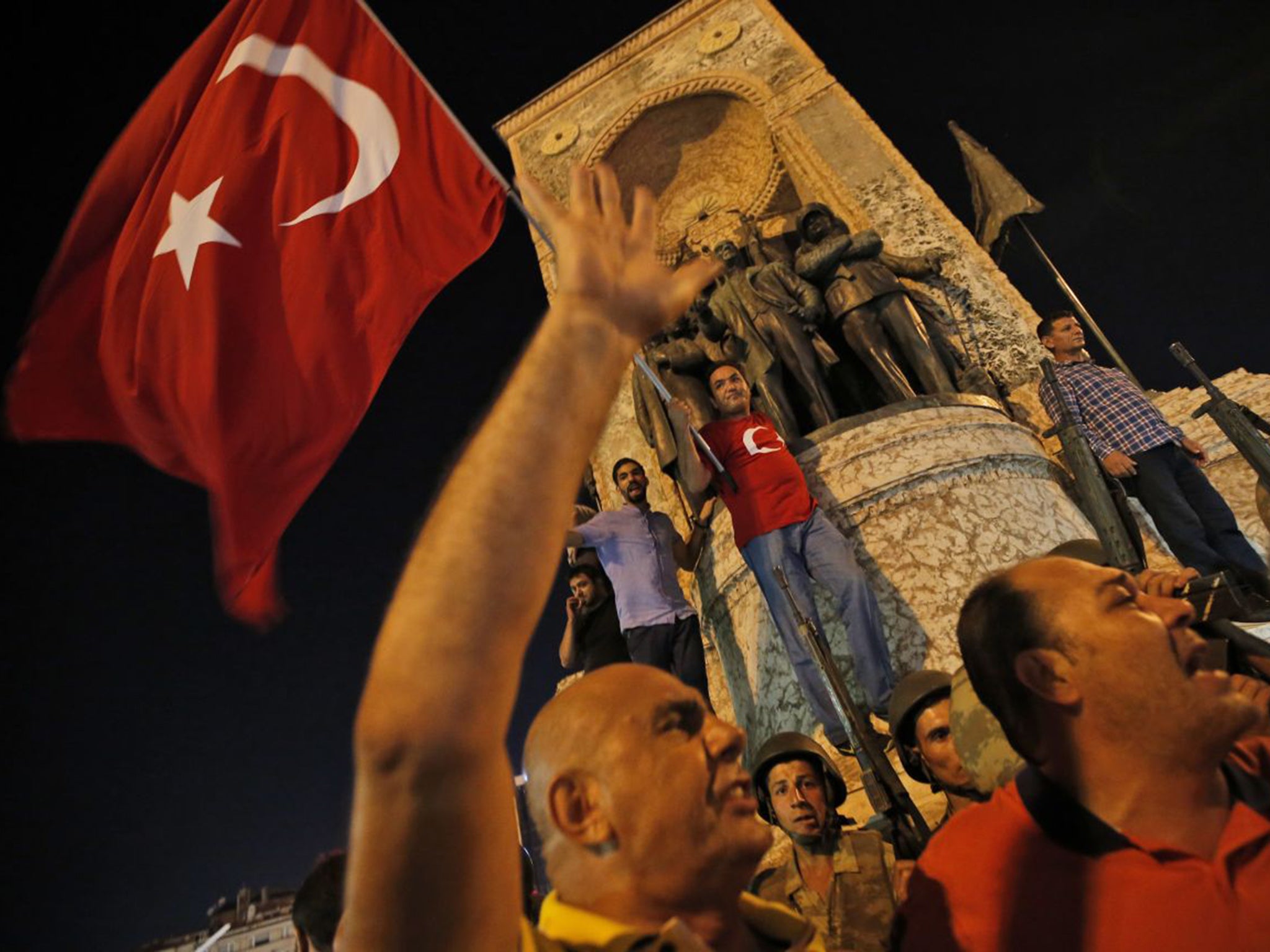Erdogan has survived this coup – but his future is still uncertain
Even if a sort of liberation was the intention of the army men in Turkey, it is not the place of the military to deliver those things

Your support helps us to tell the story
From reproductive rights to climate change to Big Tech, The Independent is on the ground when the story is developing. Whether it's investigating the financials of Elon Musk's pro-Trump PAC or producing our latest documentary, 'The A Word', which shines a light on the American women fighting for reproductive rights, we know how important it is to parse out the facts from the messaging.
At such a critical moment in US history, we need reporters on the ground. Your donation allows us to keep sending journalists to speak to both sides of the story.
The Independent is trusted by Americans across the entire political spectrum. And unlike many other quality news outlets, we choose not to lock Americans out of our reporting and analysis with paywalls. We believe quality journalism should be available to everyone, paid for by those who can afford it.
Your support makes all the difference.We may, in due course, discover what were the precise motives and intentions of those elements who tried to take control of the Turkish state. It appears to have been a slightly clumsy affair, leaving its intended victim, Recep Tayyip Erdogan, holed up in his holiday hotel room but free to use a smartphone to issue a rallying call to his people.
That worked, and the coup does not appear to have enjoyed much support among the populace or the higher reaches of the military. Tellingly, opposition and Kurdish groups condemned the attempted takeover and sided with President Erdogan.
It is tempting, but wrongheaded, to view the military's action as that ultimate oxymoron, a "liberal coup", taking power to restore full freedom of speech, the independence of the judiciary and human rights in general. It is certainly true that President Erdogan has pushed his nation away from the secularism that is the founding principle of the modern republic founded by Kemal Ataturk almost a century ago.
Many in Turkey and outside felt that the ruling AK Party's flirtations with Ottoman-style nationalism and fundamental Islam were dangerous. President Erdogan sometimes seems to want to be a sultan, and there are dark rumours about links to Isis. Even if a sort of liberation were the intention of the army men, it is not the place of the military to deliver those things. In practice, and as was seen earlier in Egypt, generals tend not to release their grip on power with any sense of urgency, and nor do they tend to welcome criticism, dissent and opposition.
It was, in any case, tragically counter-productive. Having faced down the army and summoned much of the population in support, President Erdogan's position is stronger than ever. We may expect summary punishment for the soldiers rounded up by still-loyal police. More diplomatically difficult will be Turkish demands for the extradition of some troops who managed to escape to Greece and for the return of Erdogan's arch foe Fetullah Gulen.
The leader of the "Gulen movement" was once an ally of the President but has since turned against him and found asylum in the United States. Rightly or wrongly, he is being blamed for directing or inspiring the coup. Important an ally as Turkey is, it would be wrong for the US to send him back to an uncertain fate in Ankara.
In truth, Britain is a minor player in the region, though our new foreign secretary has family links to Turkey. The pointlessly offensive limerick he composed about President Erdogan a few years ago came uncomfortably to mind as he bumbled out of the Foreign Office to utter the usual platitudes, the lapel of his jacket not quite flat. Still, he didn't make a fool of himself or Britain.
It is difficult to be optimistic about Turkey's future now. At the start of this century, as Recep Erdogan was emerging, it seemed a model, a beacon, of progress. A liberalised economy was delivering jobs for Turkey's youth – in stark contrast to its neighbours where the lack of such opportunities led directly to the Arab Spring. Turkey was one of only two democracies in the Middle East, and one of relatively few democratic states in the Muslim world. It had a proud history of secularism. Coups d'etat seemed to be a thing of the past. Today it has still-tense relations with its neighbours – Russia, Kurdistan and Isis controlled Iraq and Syria, and now Nato ally America. The military are evidently restless, and freedom and the economy are regressing. We have not have seen the last of trouble in Istanbul and Ankara.
Join our commenting forum
Join thought-provoking conversations, follow other Independent readers and see their replies
Comments